When you first enter a work environment, especially in a multicultural financial sector, you may feel stressed and confused about your role. However, rather than focusing on what you are not good at, discovering and promoting your personal strengths will help you gain confidence and reduce stress. Your unique skills not only bring value to you but also contribute significantly to the development of the organization.
Self-Assessment: Discover Your Strengths
In your career development journey, self-assessment plays an important role in identifying and developing your personal strengths. Understanding your abilities not only helps you gain confidence but also creates a solid foundation for your career.
1. Reflect on the Past: Achievements and Challenges
Look back at your past to identify the achievements and challenges you have experienced. Successful projects, creative solutions, and how you overcome difficulties all reflect your abilities and strengths. Ask the question: “What helped me succeed in this situation?” to better understand yourself.
2. Interests and Passions: A Guide to Strengths
Hobbies and passions are often closely related to your strengths. Activities that you enjoy and find interesting often reflect your natural abilities. Consider what you do in your free time and find fulfilling; it can be the key to identifying your strengths.
3. Feedback From Others: An Outside Perspective
Getting feedback from colleagues, friends, and family members can help you gain an objective view of yourself. They can point out strengths that you may not have realized. Don’t hesitate to ask, “What do you think I’m best at?” to get valuable feedback.
4. Personal SWOT Analysis: A Useful Tool
The personal SWOT method helps you analyze your strengths, weaknesses, opportunities, and threats. By listing and evaluating each factor, you can more clearly identify your abilities and areas for improvement.

5. New Challenges: Discovering Hidden Potential
Sometimes, trying new tasks or projects helps you discover hidden potential that you didn’t realize before. Be open to new opportunities and be willing to learn; This will not only help you grow, but also expand your range of strengths.
Self-assessment is an ongoing and honest process. Take the time to understand yourself, thereby maximizing your strengths and improving your weaknesses. Remember, identifying and developing your strengths will not only help you succeed at work, but also bring satisfaction and happiness in life.
Learning from Colleagues and Supervisors: The Key to Career Success
In the workplace, learning from colleagues and supervisors not only helps you improve your professional skills but also builds solid relationships, creating a foundation for career development.
1. Leverage Experience and Knowledge from Colleagues
Each colleague brings unique experiences and knowledge. Sharing and learning from each other not only helps you acquire new skills but also creates opportunities to strengthen company culture and develop comprehensively.
2. Build Good Relationships with Supervisors
Effective communication with supervisors is an important factor in your career. Listening and understanding your boss’s wishes and expectations helps you do your job better and opens up opportunities for promotion.
3. Learn From Successful People
Observing and learning from successful colleagues will help you recognize the qualities and skills needed to achieve success at work.
4. Develop Internal Communication Skills
Effective internal communication skills help you build positive relationships with colleagues and superiors, thereby improving work efficiency and creating a friendly working environment.
5. Support Each Other to Improve Work Efficiency
Supporting colleagues not only helps you build good relationships but also improves overall work efficiency. Mutual support creates a positive and dynamic working environment.
Learning from colleagues and superiors is the key to helping you develop skills, build strong relationships and achieve success at work. Be proactive in learning, sharing and supporting each other to create a positive and effective working environment.
Leverage your strengths to be more productive
In the modern workplace, identifying and leveraging your personal strengths not only helps you feel more confident, but also contributes positively to your work performance. Here are some ways you can use them to maximize your potential:
1. Identify Your Personal Strengths
First, take the time to self-assess yourself to identify your outstanding skills and abilities. This can be done through aptitude tests, feedback from colleagues, or self-observation during work. Understanding your strengths helps you focus on the right tasks, thereby improving your work efficiency.
2. Assign Appropriate Work
Once you have identified your strengths, take the initiative to propose or request to participate in projects or tasks that are suitable for your abilities. This will not only help you maximize your abilities but also make a good impression on your superiors and colleagues.
3. Focus on Important Tasks
Prioritize important tasks that are in line with your strengths. This will help you complete tasks more efficiently and minimize the time spent on unsuitable tasks.
4. Continuous Learning and Development
Even though you have identified your strengths, learning and developing new skills is essential. Taking part in training courses, reading specialized books or learning from colleagues will help you improve your capacity and expand your application capabilities at work.
5. Effective Time Management
Use time management skills to organize your work reasonably, ensure that tasks are completed on time and minimize stress. This will help you maintain stable and sustainable work performance.
Using your strengths will not only help you complete your work effectively but also create opportunities for promotion and career development. Be proactive in identifying and promoting your abilities to achieve success at work.
Conclusion
Recognizing and leveraging your personal strengths not only makes you more confident, but also makes a difference in the workplace. When you understand your abilities, you can focus on the right tasks, improve your work efficiency and contribute positively to the development of the organization
To maximize your strengths, self-assess to identify your outstanding skills and abilities. This can be done through ability tests, feedback from colleagues or self-observation during work. Understanding your strengths helps you focus on the right tasks, thereby improving your work efficiency.
Next, believe in those strengths. If you don’t believe they are your strengths, you will have a hard time developing them. Look for evidence and past achievements to reinforce your belief in your abilities.
Once you have identified and believed in your strengths, determine what you can do with them. This will help you find the right opportunities and tasks, thereby maximizing your abilities.
Finally, plan and build skills related to your strengths. This will help you develop yourself comprehensively and achieve success in your work.
Remember, each of your strengths is a valuable asset, helping you go further in your career. Continuously explore and improve yourself to overcome all challenges and achieve your goals.

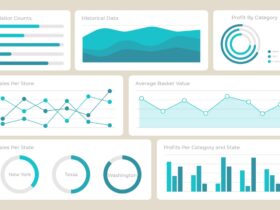
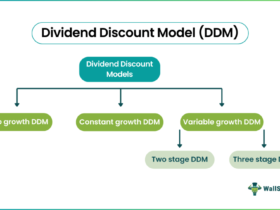





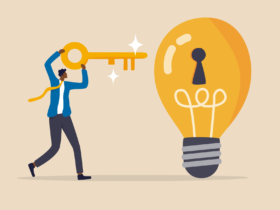
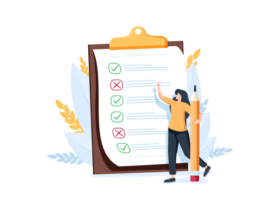
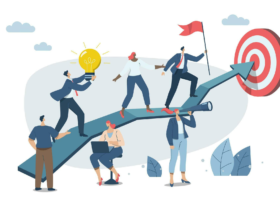









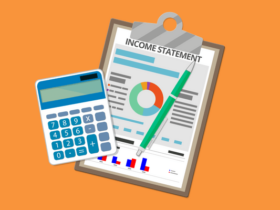




I agree that self-assessment is important. Understanding your own abilities is key to building confidence in the workplace.
I think identifying and leveraging your personal strengths can definitely make a difference in work performance. It’s important to focus on tasks that align with your strengths.
Learning from colleagues and supervisors is crucial, it helps to develop professional skills and maintain good relationships at work.
I don’t think the title of your article matches the content lol. Just kidding, mainly because I had some doubts after reading the article.
Thanks for sharing. I read many of your blog posts, cool, your blog is very good.
I don’t think the title of your article matches the content lol. Just kidding, mainly because I had some doubts after reading the article.
Thanks for sharing. I read many of your blog posts, cool, your blog is very good.
Thanks for sharing. I read many of your blog posts, cool, your blog is very good.
Thank you for your sharing. I am worried that I lack creative ideas. It is your article that makes me full of hope. Thank you. But, I have a question, can you help me? https://accounts.binance.com/cs/register?ref=S5H7X3LP
Can you be more specific about the content of your article? After reading it, I still have some doubts. Hope you can help me.
Your article helped me a lot, is there any more related content? Thanks!
I don’t think the title of your article matches the content lol. Just kidding, mainly because I had some doubts after reading the article.
Your point of view caught my eye and was very interesting. Thanks. I have a question for you.
Your article helped me a lot, is there any more related content? Thanks!
Your article helped me a lot, is there any more related content? Thanks!
Can you be more specific about the content of your article? After reading it, I still have some doubts. Hope you can help me.
Can you be more specific about the content of your article? After reading it, I still have some doubts. Hope you can help me.
eznyd0
5y07fu
nm0ojb
Looking to upgrade your style with something truly different, then [url=http://dreadlocksart.com/curly-dreadlocks/]realistic synthetic dreadlocks[/url]
is the best place. This online store specializes in all kinds of dreadlock styles, especially curly dreads, handcrafted for a natural and flawless look.
You’ll find top-notch dreadlock extensions made from safe, lightweight fibers — perfect for both daily wear and special events. Whether you’re aiming for a soft beachy vibe with wavy locks, or prefer defined, voluminous looks like
curled dreads, the variety is impressive.
Many clients choose styles like dread curls to highlight their facial features and add volume. Options such as wavy dread extensions are ideal for quick installs, while dreadlocks for sale near me make this shop perfect for U.S. customers looking for convenience and speed.
Not sure what to pick? Popular collections include dreadlocks for girls, or even vibrant and bold designs like custom blend curls.
For those wondering [how long do curly dreads last], you’ll find detailed care instructions and options for realistic dread bundles — all reviewed by happy customers.
The store also offers localized options such as wavy dreadlock extensions near me, helping you find styles with fast delivery and easy tracking.
When you’re ready to transform your look, don’t settle for average — choose [url=https://www.dreadlocksart.com/curly-dreadlocks/]synthetic dreadlocks[/url] for unmatched quality, variety, and style that reflects your identity.
u79g8f
I don’t think the title of your article matches the content lol. Just kidding, mainly because I had some doubts after reading the article.
Your point of view caught my eye and was very interesting. Thanks. I have a question for you.
Your point of view caught my eye and was very interesting. Thanks. I have a question for you.
Your article helped me a lot, is there any more related content? Thanks! https://www.binance.info/uk-UA/register-person?ref=W0BCQMF1
Your point of view caught my eye and was very interesting. Thanks. I have a question for you. https://www.binance.info/en-IN/register?ref=UM6SMJM3
ifvyq5
Your article helped me a lot, is there any more related content? Thanks! binance
Thanks for sharing. I read many of your blog posts, cool, your blog is very good. binance
Thanks for sharing. I read many of your blog posts, cool, your blog is very good.
Thanks for sharing. I read many of your blog posts, cool, your blog is very good.
Thanks for sharing. I read many of your blog posts, cool, your blog is very good.
You actually make it seem really easy with your presentation however I in finding this topic to be actually one thing which I believe I’d by no means understand. It kind of feels too complex and very wide for me. I’m looking forward on your next put up, I will attempt to get the dangle of it!
**mindvault**
mindvault is a premium cognitive support formula created for adults 45+. It’s thoughtfully designed to help maintain clear thinking
**mind vault**
mind vault is a premium cognitive support formula created for adults 45+. It’s thoughtfully designed to help maintain clear thinking
khu7qh
Hi , I do believe this is an excellent blog. I stumbled upon it on Yahoo , i will come back once again. Money and freedom is the best way to change, may you be rich and help other people.